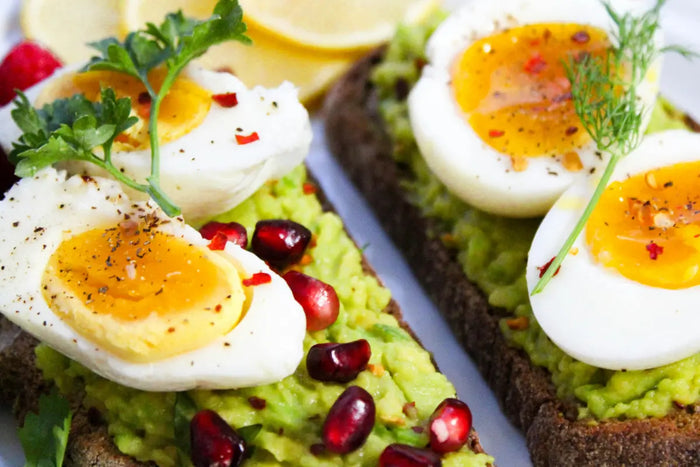What is BMR?
Basal Metabolic Rate (BMR), also sometimes referred to as Resting Metabolic Rate (RMR) is the metric used to measure your body’s metabolism. Your BMR refers to the number of calories that your body requires to keep your body functioning at rest, and how much energy your body burns at rest.
You may be under the impression that you need to adopt a gruelling exercise regime to achieve your fitness goals – but this definitely isn’t the case. (Phew!)
Depending on your fitness goals, you may want to calculate your BMR to ensure you are getting the best results from your dietary behaviours and workouts. Any increase to your metabolic weight, such as exercise, will increase your BMR, and therefore increase your body’s energy and fat burning efficiencies.
A lot of people try and ‘speed up’ their metabolism (which is a set of processes in your body responsible for a whole host of things, including energy and fat-burning) when trying to lose weight– but this isn’t strictly possible. By calculating your BMR, you can work out exactly what your body needs, and learn how to increase the rate at which your body burns fat that way.
The key here is to note that whilst you can’t control how fast your body naturally burns fat, you can control how many calories you burn through exercise – and calculating your BMR will give you the knowledge necessary to accurately and safely achieve this – if that’s your fitness goal. Calculating your BMR isn’t only beneficial to those looking to lose weight, though, and we’ll get into that shortly.
In short: knowing your BMR is the key to building muscle or losing weight.
What is a ‘normal’ BMR?
As with all body and health-related factors, what is normal for one person won’t be normal for another, so it’s important not to get hung up on these statistics. But, if you’re looking for a starting point, or an average, the average BMR for a man is 7,100kJ, and for a woman: 5,900kJ (kilojoules). This refers to energy, and notes the average energy-burning rate for each sex.
To break it down simply, if you have a low BMR, this means that your metabolism is slower - you need to eat a lower amount of calories to be able to lose body mass. On the flip side, if you have a high BMR, you’re going to need to burn more calories to lose weight, as your metabolism is faster. Highly active individuals such as athletes will typically have a high BMR, purely due to the amount of daily exercise they do.
It can be frustrating as someone trying to lose weight to learn that their metabolism is just naturally slower than other people, and sometimes disheartening. But please don’t be demotivated, these factors are often out of our control, and it doesn’t mean that you won’t be able to lose weight.
What affects our BMR?
- Body size
- Your growth rate
- Your gender
- Your weight
- Your age
- Your ethnicity
- Hormones
- Any dietary deficiencies
- The amount of exercise you do
- Your environmental temperature (yes, really!)
This is why it’s important that there is no ‘normal’, and you should concentrate on your BMR and how you can use this information to reach your individual fitness goals – whatever they are.
BMR and Weight-Loss
With the recent decline in physical activity as a result of COVID-19 and the drastic changes to our lifestyle, many people have started to calculate their BMR to make positive changes to their health. Worryingly for our overall health, a recent study found that 42% of people reported gaining weight since the pandemic began.
It’s predicted that the after-effects of this drop in exercise will continue long after the pandemic ends – so it’s important that we take the necessary steps to take back control of our health and dietary behaviours.
A great way of doing this is to calculate your BMR so that you are informed to be able to make healthy choices – The McKinsey Global Institute state that we could reduce disease and obesity risk by as much as one third if we introduce weight management into our daily routines.
Calculating Your BMR
Calculating your BMR can be pretty complex and can be done through a calculation that takes into account your gender, weight in kilograms, height in centimetres and age and amount of daily exercise you currently do or aim to do.
Calculating your BMR is the first step in discovering your metabolic rate, and can set you up nicely to make any necessary changes to your diet to achieve your fitness goals and improve your performance and overall well-being.
Calculating your BMR can enable you to achieve a range of fitness goals, including:
- Weight Loss
- Weight Maintenance
- Weight Gain
How To Calculate Your BMR
However, due to the complexity and range of factors involved, many people choose to use a simple BMR calculator to gain an automatic BMR estimate.
You’ll find when using these online calculators that many refer to a ‘calculation formula’, typically either Mifflin St. Jeor or Harris-Benedict – both named after the researchers that purposed them. Either can be used to calculate your BMR, so it is generally up to personal preference – but many researchers recommend Mifflin St. Jeor, claiming higher accuracy rates.
Ready to try one out? Simply enter your info into the calculator below to get an approximation of your BMR.
From here, you can use this result as an estimation to set your needs. Now it’s time to decide on your diet, workouts and supplements to assist you on your fitness journey.
Summary
Calculating your BMR is a great place to start in your fitness journey – or even a perfect technique to implement into your existing routine if you want to further improve your performance. This calculation means you are completely in-the-know when it comes to your body’s performance and physical health, allowing you to control and monitor your well-being.
When making dietary changes as a reflection of calculations such as BMR – be sure not to do anything too drastic, too quickly. Make small, manageable and healthy changes that are manageable and be consistent for the best results.
Happy calculating!
References
- Frankenfield, D. C., Muth, E. R., & Rowe, W. A. (1998). The Harris-Benedict studies of human basal metabolism: history and limitations. Journal of the American Dietetic Association, 98(4), 439-445. Click here.
- Frankenfield, D., Roth-Yousey, L., Compher, C., & Evidence Analysis Working Group. (2005). Comparison of predictive equations for resting metabolic rate in healthy nonobese and obese adults: a systematic review. Journal of the American Dietetic association, 105(5), 775-789. Click here.
- Hall, G., Laddu, D. R., Phillips, S. A., Lavie, C. J., & Arena, R. (2020). A tale of two pandemics: How will COVID-19 and global trends in physical inactivity and sedentary behavior affect one another?. Progress in cardiovascular diseases. Click here.
- Linzer, K., Remes, J. & Singhal, S. (2021). How Prioritising Health Is A Prescription For US Prosperity. McKinsey Global Institute. Click here.
- Mifflin, M. D., St Jeor, S. T., Hill, L. A., Scott, B. J., Daugherty, S. A., & Koh, Y. O. (1990). A new predictive equation for resting energy expenditure in healthy individuals. The American journal of clinical nutrition, 51(2), 241-247. Click here.
- Slightly More Than 6 in 10 U.S. Adults (61%) Report Undesired Weight Change Since Start of Pandemic. (2021). APA Organisation. Click here.

















